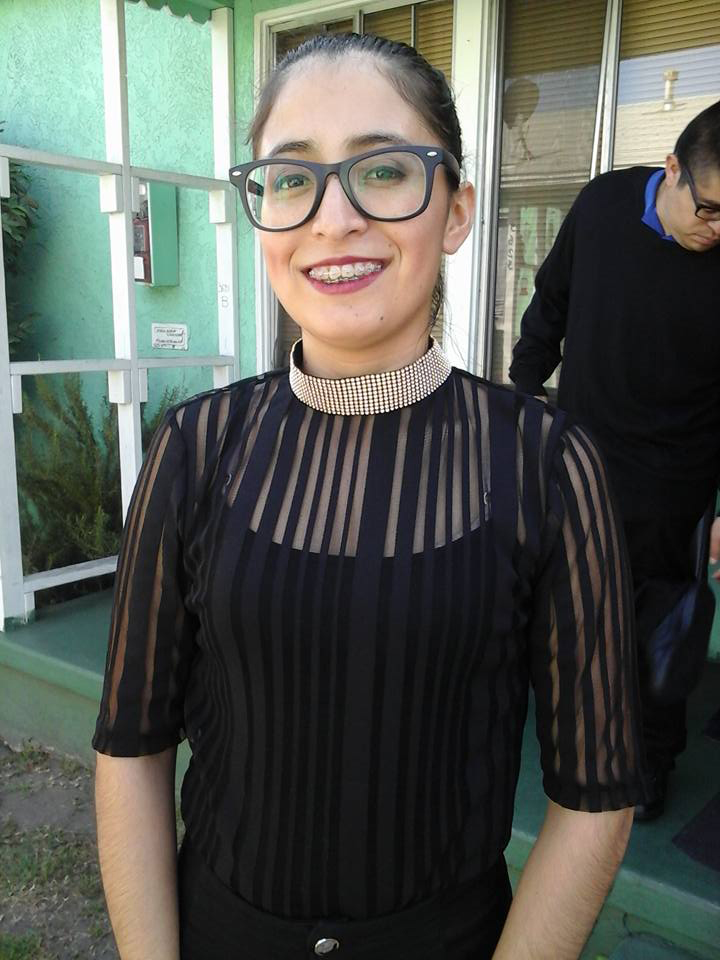
Connie Rojas, doctoral student working toward a dual degree in the Department of Integrative Biology, and Ecology, Evolutionary Biology and Behavior (EEBB), believes that activism, leadership, and service are not mere extracurricular activities, but, instead, a critical part of her role as a scientist and scholar.
Rojas currently serves as president of the MSU chapter of the Society for the Advancement of Chicanos/Hispanics and Native Americans in Science (SACNAS), an organization focused on fostering the success of underrepresented scientists. She is also the Treasurer of the Michigan Indigena/Chicanx Community Alliance (MICCA), and Colloquium Co-Chair of her department’s GSO.
“I am devoted to empowering the Latino community, mentoring undergraduate students, and increasing student retention in STEM fields,” Rojas said. “Historically, our chapter had not done much recruiting, but this academic year, I made it a priority to have our chapter represented at major recruitment events like the Graduate School Resource Fair, Latino Welcome Week, Native Welcome Reception, and the SACNAS National Meeting. As a result, we gained new members last semester!”
The MSU chapter of SACNAS consists of graduate students only, but one of the goals of the chapter is to collaborate, network, and build community with Latino undergraduates at MSU. Last spring, SACNAS, along with four other multi-cultural graduate student organizations, hosted their first annual Graduate School Workshop. MSU Latino undergraduate students of all disciplines were invited to talk with graduate students about graduate school; learn about challenges and experiences; and receive advice about preparing applications. Rojas also organized and led, for the first time in the chapter’s history, a Latino undergraduate and graduate student meet and greet event, where SACNAS graduate students networked with Latino undergraduate students from MSU’s Culturas de las Razas Unidas (CRU). The success of this event has motivated the chapter to start a STEM mentorship program next year that will match Latino STEM undergraduate students with SACNAS graduate student mentors.
“I’d like to think that my work with SACNAS has had an impact in my field,” Rojas said. “At MSU, we have provided community and professional development to current graduate students, we have introduced Latino undergraduates to potential graduate mentors, and we have brought together the different multi-cultural graduate groups on campus. Nationally, I have represented my chapter at the SACNAS Conference in California this past year, where I presented novel research on spotted hyena microbiomes, and helped Dr. Nunez, Associate Dean of the Graduate School, recruit potential graduate students to MSU.”
Rojas believes it is critical for every graduate student to engage in some type of leadership activity because they strengthen team work, communication, organizational, public speaking and problem solving skills.
“My leadership activities at MSU have been important because they have allowed me to meet other students of different backgrounds and disciplines,” Rojas said. “They have kept me sane, motivated, and hopeful as I navigate the Ph.D. program, exposing me to the diversity of academic, financial, and social resources available at MSU. They have also provided me with a family away from home and a group of people I can truly trust and who are invested in my well-being and advancement.”
Rojas plans to use the $2,000 COGS Leadership Endowment Fellowship award to attend scientific meetings relevant to her discipline; travel to and participate in leadership workshops, courses and institutes (i.e. SACNAS Leadership Institute and NIH Leadership Program); and start a blog where she can share the pieces of knowledge and tips that have helped her advance in her field.
“I am honored and thrilled to have received this award,” Rojas said. “This award means that the work I have done for my community has not gone unnoticed, and most importantly, that others also view the work as necessary and important. It feels good to see that the wonderful projects I have been a part of, from fundraisers for Oaxacan teachers, to annual Dia de los Muertos cultural events, to research forums and colloquiums, have been successful, and benefitted someone other than myself.”


